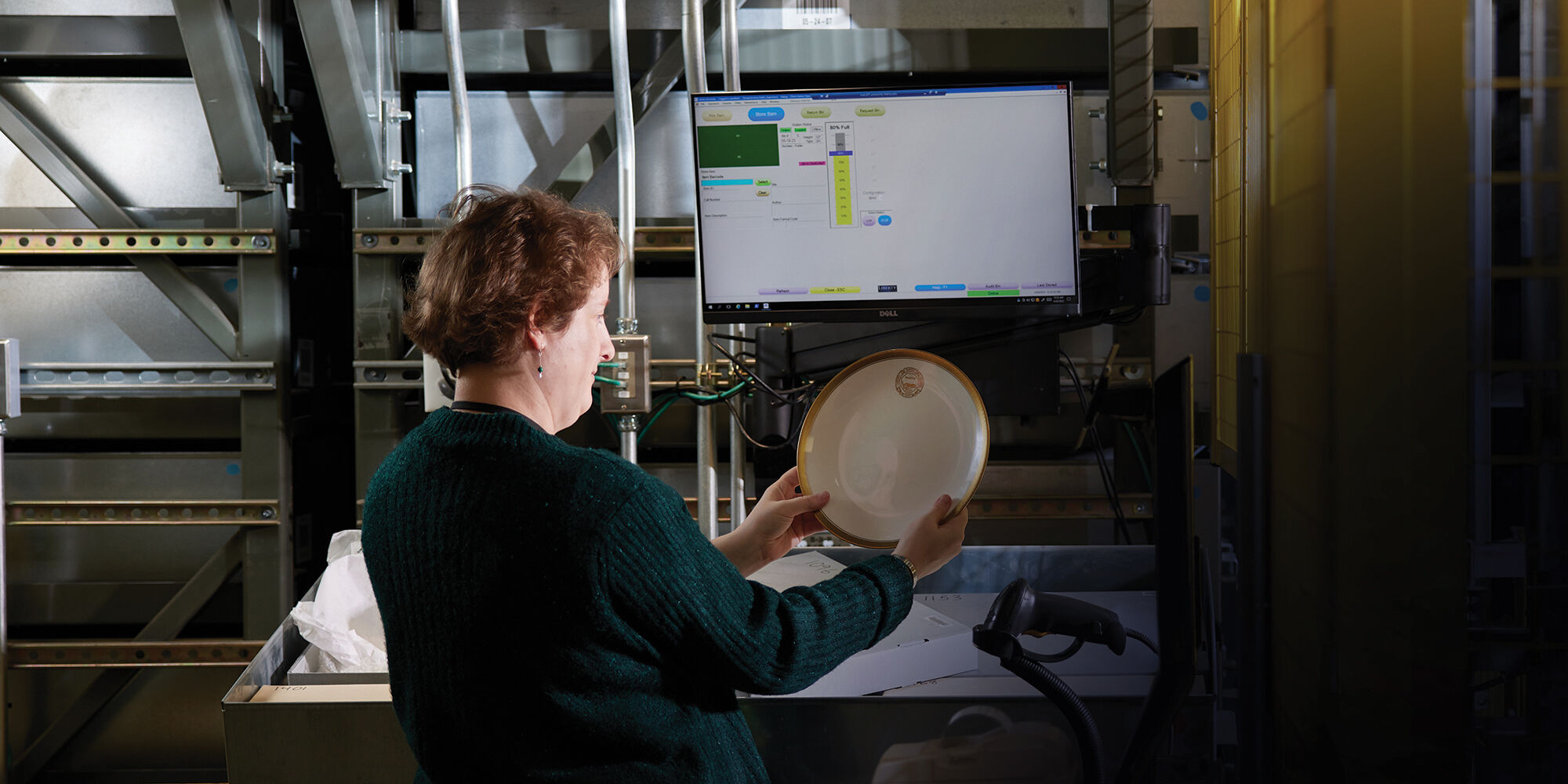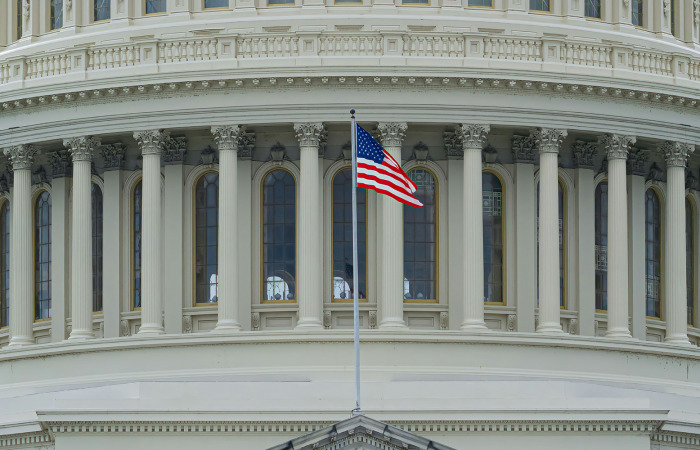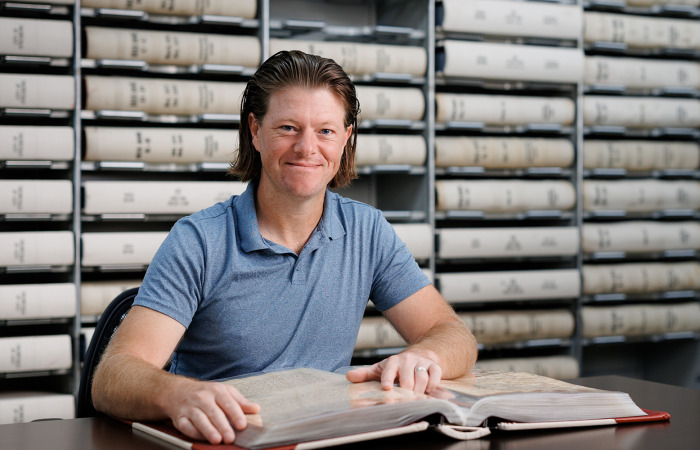Library Archives keeps Liberty’s history alive for future generations to explore
When Abigail Sattler was hired as the first archivist at Liberty University in 2005, the physical materials that documented the university’s history were tucked away in a room stacked high with unopened boxes and shelves full of papers.
“They took me down to this room on the first floor of the old library in DeMoss Hall, swung open the door, and said, ‘Here’s all of this. Can you organize it?’” Sattler recalled. “There was a giant pile of cardboard boxes in the middle of the room, some of it was over my head, and no one knew what was in those boxes. Sometimes I would cautiously scale the cardboard mountain, open a box, and find out what was in it for the first time.”
In the years since, Sattler and her team have sifted through the boxes, flipped through the pages, and collected a significant number of mementos in a variety of formats to create the Jerry Falwell Library Archives & Special Collections. The assortment is evidence of the university’s mission and allows anyone to follow along with the story of founder Jerry Falwell Sr.’s vision as it was being fulfilled.
The archival collection proved to be invaluable as Liberty prepared to celebrate its 50th anniversary during the 2021-22 school year. Sattler was able to verify historical information for the anniversary website (Liberty.edu/50) and for a special display on the library’s digital media wall. She served as a source for those exploring the university’s history for anniversary-related projects.
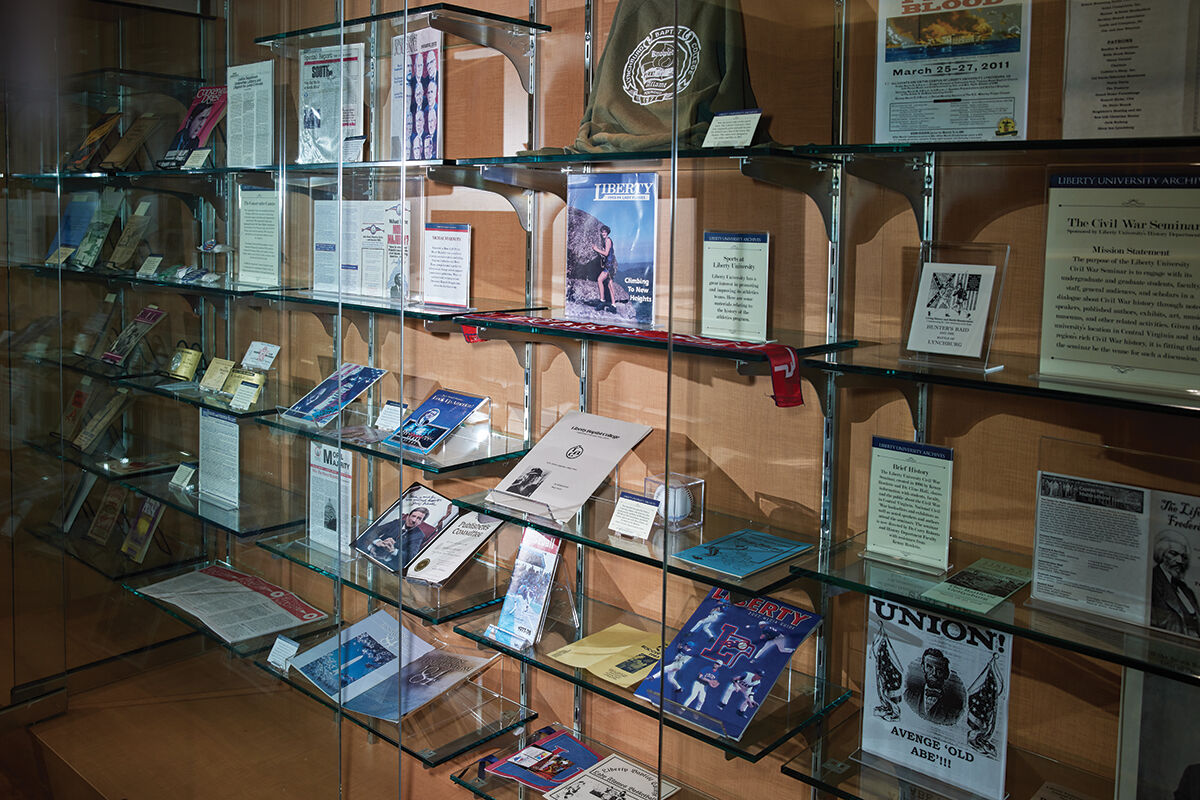
A display of memorabilia from Liberty’s history located in the Archives. (Photo by Joel Coleman)
“What Falwell Sr. accomplished was pretty amazing by any standards,” Sattler said. “Only a strong faith in God could have led him to boldly start a small Baptist college in 1971 with only 154 students, and that same faith led to a now-realized vision of it growing into a world-class university that trains students to live out their faith and serve the Lord in a variety of vocations. In the Archives, we want to do our part to embrace and honor this mission by making materials that trace the history of the university and related ministries available to the public. Doing so can help us to maintain our foundational roots as we grow and move forward as an institution.”
The Library Archives, open to the public, is located on the terrace level of the Jerry Falwell Library. In the Archive Reading Room, visitors can browse yearbooks, editions of the school newspaper or magazine, and many fascinating documents, such as Falwell Sr.’s notes that he made in preparation for a talk with Ronald Reagan in 1980 just before the presidential election. There are also documents from the Conservative Caucus, the Moral Majority (spearheaded by Falwell), and Thomas Road Baptist Church (where Falwell was senior pastor). Visitors will find treasures as diverse as Liberty sports memorabilia — gameday booklets, team statistics, schedules, and more — and other unique items, such as a rare set of china marked with the name and logo of Liberty Baptist College (pictured at top), the university’s name from 1974-85. The protection of these items is a priority, with many of the books placed in custom, non-acidic boxes and stored in the library’s temperature and humidity-controlled robotic retrieval system.
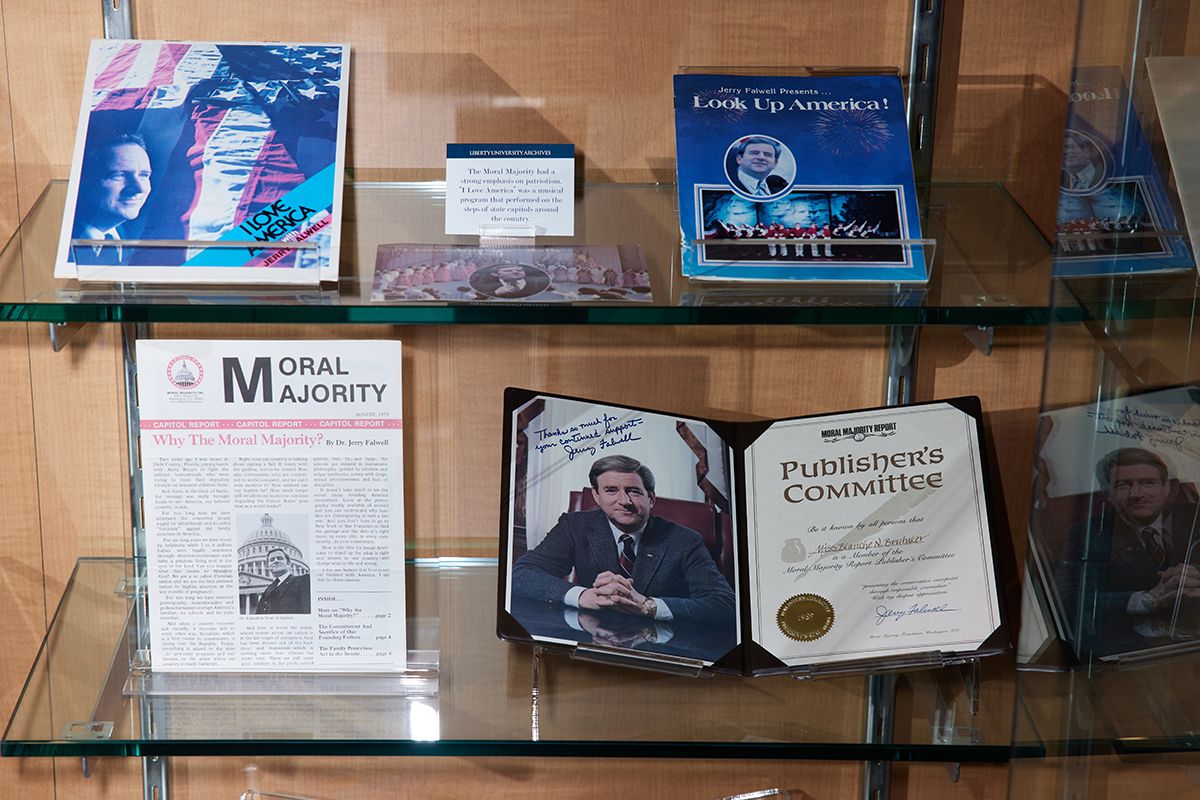
Programs and other collectibles from the Moral Majority, which was spearheaded by Dr. Falwell. (Photo by Joel Coleman)
The Archives also includes multiple audio and video recordings. Visitors can play anything from an LP to CD or VHS to DVD and listen to Falwell Sr.’s sermons, recordings of the university’s music groups or other Christian artists, videotaped lessons from distance learning courses (the predecessor to Liberty’s online program), and more.
Multiple historical resources are publicly available online at Liberty.edu/Library/Archives. Many pieces from the physical collection have been scanned and uploaded to the site; most are full-text searchable. Some media recordings have also been digitized, including all of Falwell Sr.’s “Old Time Gospel Hour” sermons as well as oral histories of the university told by alumni, staff, and administrators. The collection features interviews with Liberty co-founder Dr. Elmer Towns, alumnus and Flames Baseball and MLB player Sid Bream, and legendary Bible scholar and professor Harold Willmington, among many others. There is also a series with veterans who served in World War II, Korea, Vietnam, the Gulf War, Iraq, and Afghanistan.
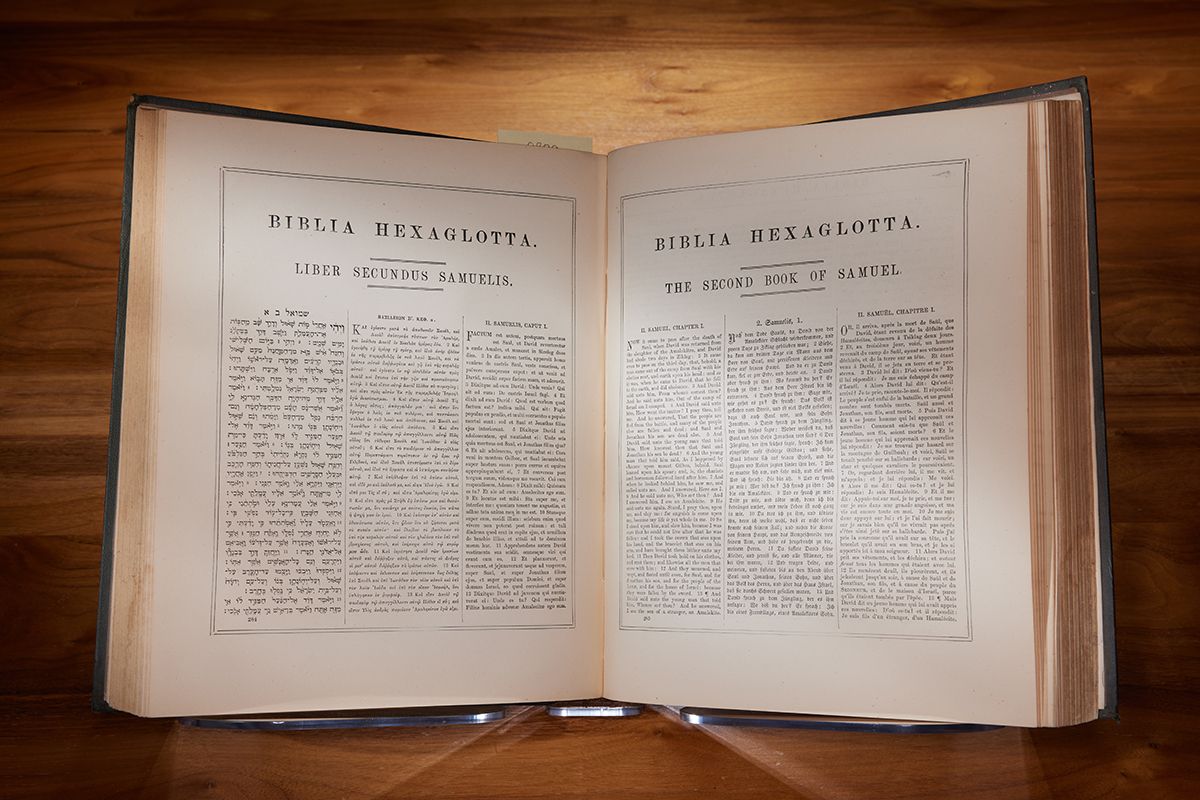
A volume of The Hexaglot Bible (Photo by Joel Coleman)
Beyond the university’s own materials, there is an ongoing effort in the Special Collections section of the Archives to gather hymnals, Bibles, and Sunday School lessons from throughout history, some in different languages. The collection includes a 1779 hymnal, an Apostolic history book from 1672, and a volume of The Hexaglot Bible with six languages printed in parallel — English, Hebrew, German, French, Greek, and Latin. A page from an original 1611 King James Bible is on loan to the Archives and displayed on a wall in the reading room.
The Archives has also amassed a Christian fiction collection as well as pieces of secular literary history, such as a first edition of the Agatha Christie novel “The Mystery of the Blue Train” and an original 1891 copy of Strand Magazine with a Sherlock Holmes story inside. Letters and other documents from historical figures can also be found, such as an 1844 letter from Samuel Morse to “The Honorable First Auditor of the Treasury.”
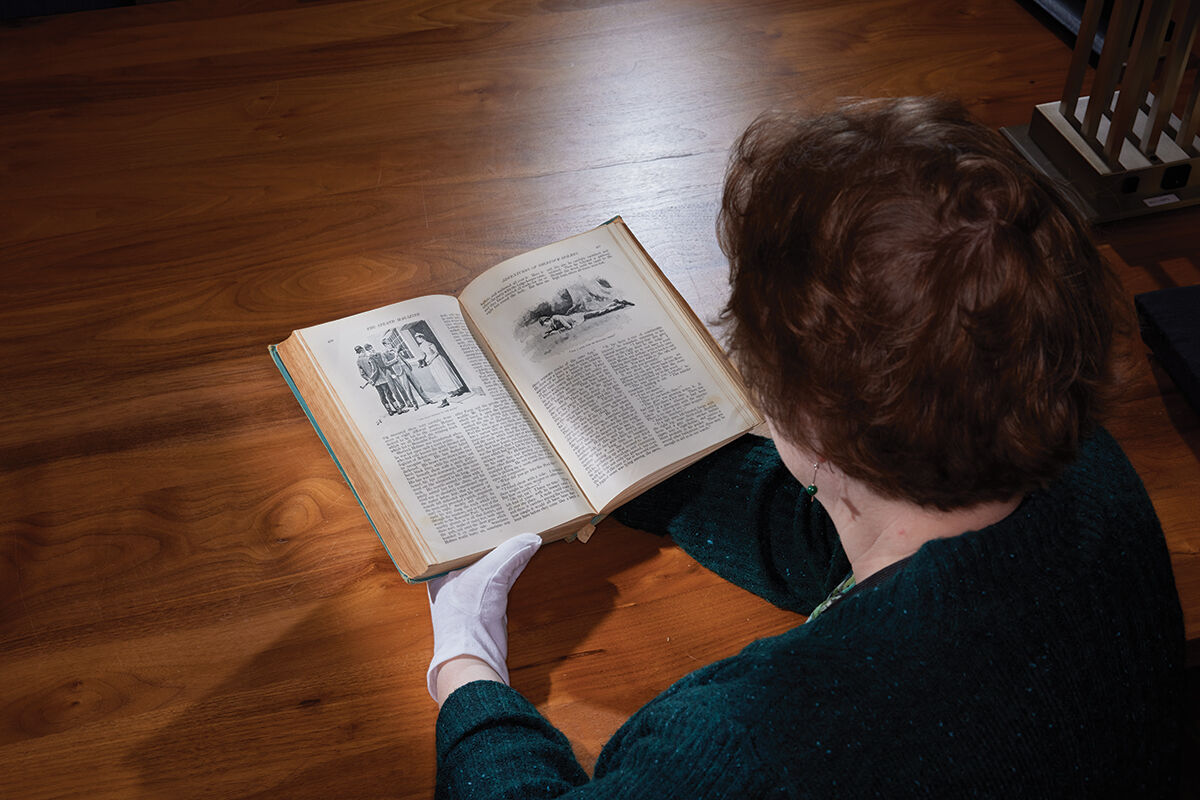
University Archivist Abigail Sattler holds an original 1891 Strand Magazine, the first publication to feature the short stories of Sherlock Holmes. (Photo by Joel Coleman)
As a Liberty alumna herself, Sattler said she has enjoyed collecting and sharing LU’s history. She holds an M.S. in Information Science from the University of Tennessee at Knoxville and is certified as a digital archive specialist by the Society of American Archivists.
“My idea of a good time is taking a box of random papers and organizing it, figuring out where they came from and where they should go,” she said. “My family has worked at Liberty, I went to Liberty, and I find that the people here are the greatest, so it’s really not hard to get invested in the history of the university.”
Sattler understands the significance of her role in preserving LU’s history for future generations.
“These materials can serve as inspiration to our students as they seek to boldly serve the Lord by setting big goals just as Falwell Sr. did.”
